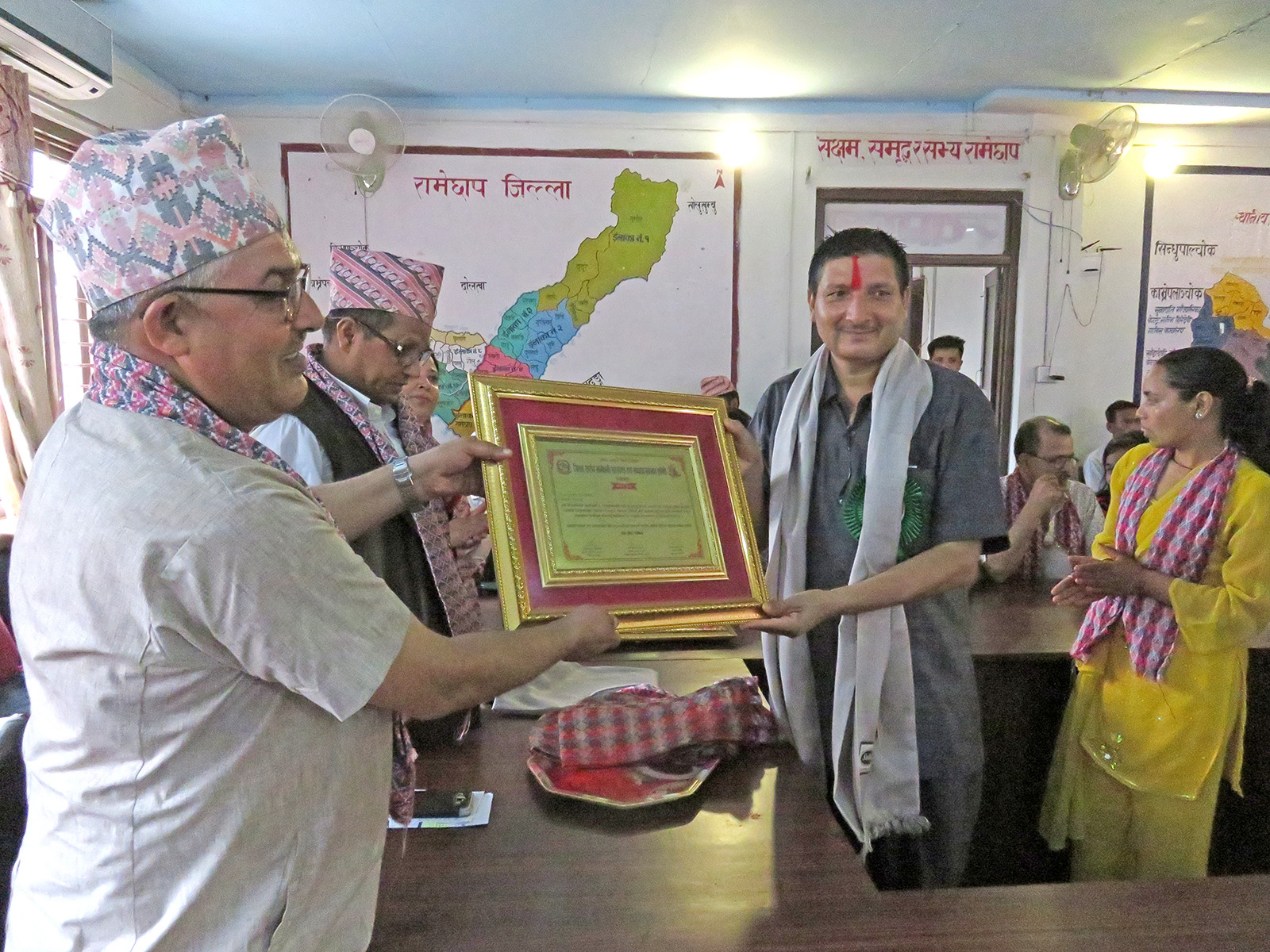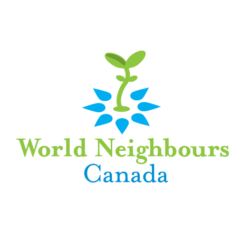
We are celebrating at World Neighbours because our partner organization, TSS (Tamakoshi Sewa Samiti) in Nepal, was recently honoured for their work to help make the Ramechhap District declared an Open Defecation Free (ODF) Zone.
This was a multiyear process which involved the commitment of the community as a whole, individuals, TSS, and the local government. The progress was interrupted by politics and earthquakes but the end result spells a healthier future for the community.
Our TSS contact Suresh Shrestha reported:
“TSS was especially recognized & appreciated for the initiative and incredible contribution in toilet program. On behalf of TSS, Mr. Govinda received the appreciation frame. The appreciation frame was handed over by the Chief Guest, the Member of Parliament of Province No. 3, who was elected from Ramechhap.”
We too applaud and thank TSS for their hard work in helping the community of Ramechhap improve their own situation.
TSS is one of the oldest and most respected non-government organizations in Nepal. It works in Ramechhap District (in the eastern part of the country) to alleviate poverty and help rural communities become more self-reliant. TSS helps village groups to organize themselves, manage finances, hold effective meetings, and undertake improvement projects. Their initial strategy is to establish and mobilize villagers to plan, organize, build and maintain water systems. When the water systems are installed, villagers often then choose to install sealed, sanitary toilet systems, which TSS and WNC also help them with. The combination of easily accessible potable water and greatly improved sanitation systems has greatly reduced the incidence of gastrointestinal disease in Ramechhap.
World Neighbours Canada, since 1989, has had the privilege of providing and facilitating financial support for the village water systems and the sealed, hygienic toilets that are all installed and maintained by local people. TSS provides only technical guidance and training, and the people themselves provide all local materials and all of the labour needed. Non local materials such as pipe, valves, cement, toilet pans and re bar, are purchased by TSS as needed, and are carried by men, women and children, from the end of the road to their remote villages.
Because the villagers take ownership of the projects from the earliest stages of planning and design, and because they are in charge of long term maintenance and repair, the projects have proven to be very successful.

